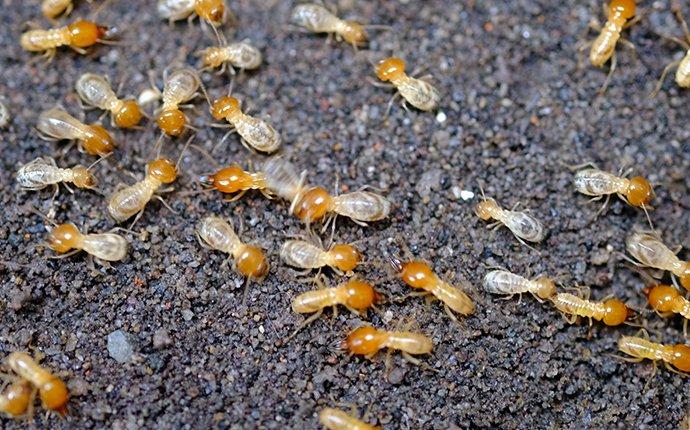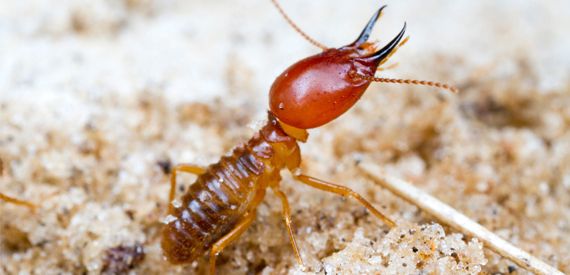Efficient Ant Control: Professional Services to Eliminate Ant Infestations
Efficient Ant Control: Professional Services to Eliminate Ant Infestations
Blog Article
Environmental Effect of Insect Control: Balancing Performance With Sustainability
The ecological influence of parasite control is a critical issue that needs a delicate equilibrium in between accomplishing effectiveness in taking care of pests and guaranteeing sustainability of our ecological communities. As we aim to secure our crops, homes, and health from the threats presented by insects, the methods we utilize can accidentally harm the setting. From using harmful chemicals that permeate right into our dirt and water to the unintentional effects on non-target types, the effects of conventional parasite control practices are far-reaching. There are arising strategies that provide hope for a much more sustainable technique to pest administration. These options not just purpose to resolve the prompt insect problems however also consider the long-lasting wellness of our planet.
Dangerous Chemicals in Insect Control
The usage of harmful chemicals in insect control positions considerable environmental and wellness risks that warrant careful factor to consider and reduction approaches. Pesticides, pesticides, and herbicides are typically utilized to remove pests, however their prevalent application can cause unintentional effects. These chemicals can infect soil, water sources, and the air, impacting not just the targeted insects but also helpful insects, wildlife, and human beings.

To attend to these risks, incorporated bug monitoring (IPM) methods are being promoted as a more lasting alternative. IPM involves a combination of techniques such as organic control, environment adjustment, and the targeted usage of pesticides as a last resource (ant control faquay varina nc). By taking on an alternative approach to pest control, we can lessen the environmental and wellness effects associated with unsafe chemicals while efficiently managing pest populaces
Effect On Non-Target Variety
Considering the unintended consequences of pest control techniques, the effect on non-target types is a vital aspect that needs complete evaluation. While pest control measures intend to target particular pests, various other organisms in the community may be inadvertently influenced. Non-target varieties, including advantageous pests, birds, mammals, and also plants, can endure direct or indirect injury from pesticide applications or biological control methods.
Pesticides created to fight a certain bug bug may hurt pollinators like bees or natural predators such as ladybugs. Biological control agents, if not species-specific, can pose threats to unintended targets, interfering with the environmental balance.
To minimize the influence on non-target species, integrated insect administration (IPM) methods that stress a holistic approach to pest control are suggested. These approaches focus on making use of eco-friendly techniques, minimizing injury to useful microorganisms while efficiently managing pest populations. Performing comprehensive danger evaluations and monitoring the results of bug control initiatives are essential actions in guarding non-target types and promoting total environment health and wellness.
Soil and Water Contamination
Unintentional environmental repercussions of parasite control approaches extend beyond influencing non-target varieties, with considerable implications for dirt and water contamination. Chemicals, herbicides, and chemical plant foods used in bug control can leach into the soil and infect groundwater, posing a danger to both earthbound and water ecological communities. Soil contamination can interrupt the balance of bacteria crucial for vitamins and mineral cycling and plant development, leading to reduced dirt fertility and productivity. These chemicals can persist in the atmosphere for prolonged durations, building up in the soil and possibly getting in the food chain.
Water contamination is one more important concern connected with insect control methods. To mitigate soil and water contamination from bug control tasks, incorporated parasite administration methods that prioritize sustainability and decrease chemical inputs are important.
Air Contamination From Chemical Usage
Direct exposure to air-borne chemicals during agricultural applications postures a considerable worry for air pollution control measures. They can volatilize right into the air and type unpredictable natural compounds (VOCs) and various other airborne toxins when pesticides are splashed onto plants - termite control services. These chemicals can contribute to the development of ground-level ozone, a major part of smoke that can have detrimental effects on human health and wellness, plant efficiency, and overall air top quality. In addition, pesticide drift, where chemicals are carried by the wind to unexpected locations, can cause the contamination of neighboring ecological communities and water bodies.

Methods for Lasting Pest Control
In the realm of agricultural techniques, carrying out lasting parasite control techniques is extremely important for maintaining eco-friendly balance and safeguarding crop yields. Sustainable parasite control stresses making use of eco-friendly techniques to take care of bug populations effectively while reducing damage to non-target organisms and ecosystems. Integrated Pest Management (IPM) is a commonly adopted technique that incorporates biological, social, physical, and chemical control approaches to attain lasting parasite monitoring remedies.
One secret method in lasting insect control is advertising biodiversity within agroecosystems. By improving all-natural adversaries of parasites, such as killers and parasitoids, farmers can minimize the need for artificial pesticides. Plant rotation and diversity are additionally efficient methods to disrupt pest life process and create much less favorable conditions for pests to grow. Additionally, utilizing pest-resistant plant selections and utilizing methods like catch chopping can help minimize pest stress without relying greatly on chemical treatments. Ultimately, by integrating these lasting bug control methods, farmers can accomplish an equilibrium in between pest administration performance and ecological stewardship.
Final Thought
Finally, the environmental influence of insect control approaches have to be thoroughly taken into consideration to stabilize performance with sustainability. Hazardous chemicals used in bug control can bring about dirt and water contamination, air pollution, and damage non-target varieties - ant control services. It is crucial to apply lasting bug control approaches to reduce these negative impacts on the environment and advertise a much healthier community for future generations
By embracing an all natural method to pest control, we can lessen the environmental and health influences associated with unsafe chemicals while efficiently managing pest populaces.

To mitigate the air pollution triggered by chemical usage, it is essential to embrace incorporated pest monitoring approaches sites that prioritize the use of non-chemical parasite control techniques, such as plant turning, all-natural predators, and resistant plant varieties. Lasting parasite control stresses the use of environmentally friendly methods to manage bug populations efficiently while decreasing injury to non-target microorganisms and ecosystems. Integrated Parasite Monitoring (IPM) is a commonly embraced technique that integrates biological, cultural, physical, and chemical control approaches to attain lasting pest monitoring services.
Report this page